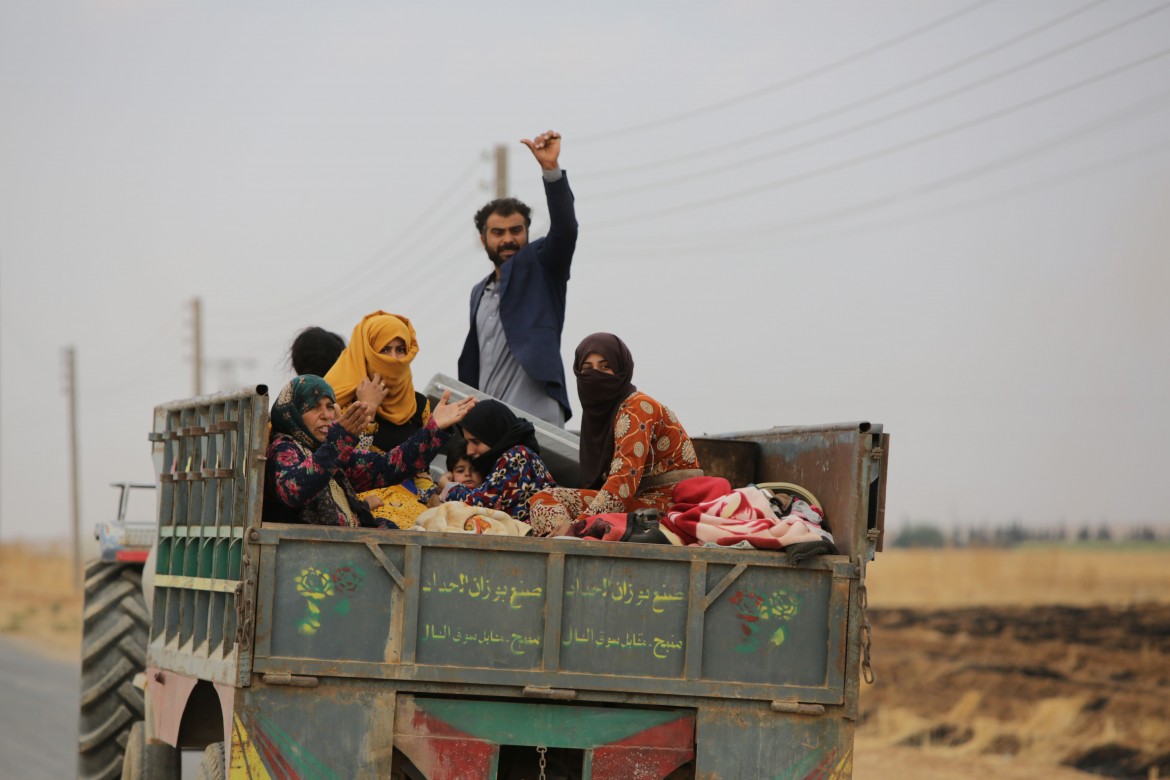Reportage
Di Maio promised an arms embargo against Turkey – it never happened
On Oct. 14, Italian Foreign Minister Luigi Di Maio said he would block the export of weapons to Turkey after their invasion of Kurdish Syria. Three months later, there has been no embargo. In fact, Turkey is Italy’s No. 1 arms importer.

On his way to Istanbul on Tuesday afternoon, Foreign Minister Luigi Di Maio was keen to underline that Ankara’s role is “fundamental at this time for what is now the war in Libya.” In Turkey, he met with his counterpart, Mevlut Cavusoglu, with whom he agreed on the need to start international negotiations on the crisis in the North African country, to which Erdogan has already sent the first troops.
However, just three months ago, Turkey itself had been the object of international condemnations for its invasion and occupation of the northeast of Syria, a Kurdish majority region, which is still ongoing. The Turkish troops are still there, while 300,000 people are still displaced in and out of Rojava, and thousands of fighters from Islamist militias allied with Turkey are occupying and plundering the local communities.
On Oct. 14, five days after the launch of the Turkish attack, the same Di Maio spoke from Luxembourg, where he was attending the EU Foreign Affairs Council, promising that within a few hours there would be “a ministerial decree” blocking “the export of armaments to Turkey in terms of everything regarding the future of the next contracts.”
There was no shortage of criticism about this half-hearted measure, coming from those who were calling for the immediate suspension of the authorizations for arms sales to Turkey that had already been issued. But at least it looked like something: an embargo on future arms sales. However, no such ministerial decree has materialized.
Among the many who are denouncing this broken promise we find the Sardegna Pulita (“Clean Sardinia”) association, which has been fighting for years to block the sale to Saudi Arabia of weapons produced at the RWM factory in Domusnovas: “Di Maio has committed to issuing a ministerial decree to block the sale and export of arms made by Rheinmetall, the owner of RWM, to Turkey,” Angelo Cremone of Sardegna Pulita said. “His statements were reported by all the Italian and international press. There is absolutely no trace of the ministerial decree that was touted and about which guarantees were given, in accordance with Law 185/90.”
The same situation, with the lack of an official document issued, has also occurred on the Saudi issue. Here, the government decided on a toothless implementation of the motion passed by Parliament on June 26 (calling for an 18-month suspension of the sale of weapons to Riyadh), by passing a decision which intentionally lacked “the appropriate juridical formalism,” as Raffaele Salinari explained in il manifesto on Aug. 9.
Thus, there is no embargo and no real prospect for one, at least in official terms. As Rete Disarmo tells us, the Foreign Affairs Ministry downgraded the decree to an internal memo (which doesn’t need to be published and is not legally binding) calling for a review of the previously issued arms sales authorizations, but it’s not clear whether such a review has even been started.
“It does not appear that any review has been conducted,” Giorgio Beretta from OPAL tells us. “If there is no official statement from the Foreign Ministry on a possible suspension, if there is no formal act, then everything remains as it is. And if we cross-reference the data available until September, we can see that there have been significant export activities of military ammunition: not hunting rifles—as Guido Crosetto, the president of the Federation of Italian aerospace and defense companies, has claimed—but bombs.”
Between January and September 2019, as reported by Giorgio Beretta and Duccio Facchini in an article for Altraeconomia, weapons and ammunition worth €76.2 million have been shipped from Italy to Turkey. This is a threefold increase compared to the same period of the previous year (€24.9 million).
“Seven years ago, in 2013, the Division for Authorizations of Weapons Materials (UAMA) at the Ministry of Foreign Affairs gave the go-ahead for the export of ‘weapons materials’ worth €11.4 million to be shipped to Ankara,” the two authors wrote. “In 2018, the volume in the ‘authorizations’ column rose to €362.3 million, putting Turkey in first place among the NATO countries and third worldwide after Qatar and Pakistan.”
Among these weapons materials, we find bombs, ammunition, torpedoes, missiles, aircraft, software, military technology, armor and targeting equipment. Meanwhile, Turkey is continuing its military occupation of Rojava and has begun sending troops and mercenaries to Tripoli.
Originally published at https://ilmanifesto.it/embargo-alla-turchia-tre-mesi-dopo-le-promesse-il-decreto-non-ce/ on 2020-01-09
